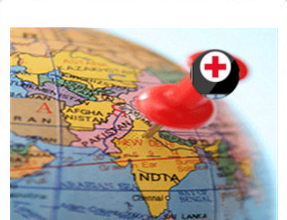The healthcare field rapidly evolving thanks to technological upgrades. Predictive analytics can help identify patients at risk for readmission just by analyzing data and comparing it against other patients who were readmitted in the past. All of this is thanks to big data or using processing power to manage and analyze a large amount of records. The computer can do the work far faster than a human and then offer options for the operator to choose from. Let’s explore how predictive analytics and big data in healthcare are improving the patient experience.
Better Decisions
According to a study done by Regis College, about 43 percent of U.S. healthcare organizations are already using predictive analytics in some capacity, with just over half planning to use it for business intelligence or as analytics.
Of those surveyed, 47 percent said predictive analytics have led to faster and more accurate decision making, and about a quarter said their operational efficiency has increased. Patient outcomes will dramatically improve in the next 3 years, according to 87 percent of those surveyed. In other words, healthcare providers have already seen their jobs increase in efficiency and have seen better results with patients thanks to big data and predictive analysis — and it’s only going to get better in the next few years.
Cancer
That all sounds great, but how does it work in the real world? One way is in a clinical trial surrounding myeloma, a painful blood cancer. Researchers are gathering data on the patients’ quality of life, specifically the amount of pain they are in.
Using data collected from wearable devices and smartphones, the researchers are measuring sleep patterns, general mobility, and how much pain is impacting both. Using this data, doctors can create better therapies and treatment plans to address the pain, creating a more positive outcome for the patients and giving a better understanding of myeloma.
Identifying Risks
Feeding patients’ charts into a computer can help identify risk factors that a doctor might miss. As doctors become increasingly specialized in medical fields, they may miss a comorbid disease or disorder, unknown to them but known to other doctors. With a computer given the knowledge of every disease, condition, and symptom known to man, it can quickly compare symptoms to previous patients to spot what a doctor might miss.
In short, a computer can identify a thousand factors a doctor might not know what to look for and suggest the doctor investigate. The patient, therefore, receives better treatment. On top of this, the computer can use predictive analysis to determine if there are additional, future risk factors present, leading to better preventative care as well.
Problems
Infrastructure
Big data and predictive analysis are not without their share of problems, however. From the Regis study, 19 percent of providers said they lacked sufficient technology to support implementing big data and predictive analysis.
This reveals the first problem: It takes powerful computers to crunch data of significant size. A fifth of providers said they had incomplete data, which would result in incomplete analysis. A lack of processes or infrastructure in place was also a barrier for 15 percent of those surveyed.
Staff
Another barrier stopping more providers from adopting big data is staff. Nurse informaticists, chief nursing informatics officers, and clinical informatics analysts, on the business side, are all trained in interpreting both input and output of big data.
The nurses use the data for two purposes. First, it allows them to be better at their jobs, and take better care of patients. Second, they can use the output to affect policies for the provider. For example, they might change staffing levels based on predictive needs.
A clinical informatics analyst, meanwhile, also affects policies, but at the business level. They are also in charge of maintaining the computer systems, creating guidelines and regulations, and improving clinical practices and standards with the help of the data.
Both positions are necessary to make the process of using big data smooth, but many providers have not hired the positions.
Big data and predictive analytics hold massive potential in improving patient care, as well as preventative care. It can be used to predict whether the patient might be readmitted, allowing doctors to address problems before they become worse. Additionally, it can see risk factors that might otherwise go unnoticed to a doctor specialized in a different field; it can help predict staffing levels, providing enough nurses to effectively serve patients’ needs; and can be used to parse incredible amounts of data to provide better treatment options. Using big data has its barriers to entry, but as these hurdles are cleared, it will continue to make significant steps forward in healthcare.







